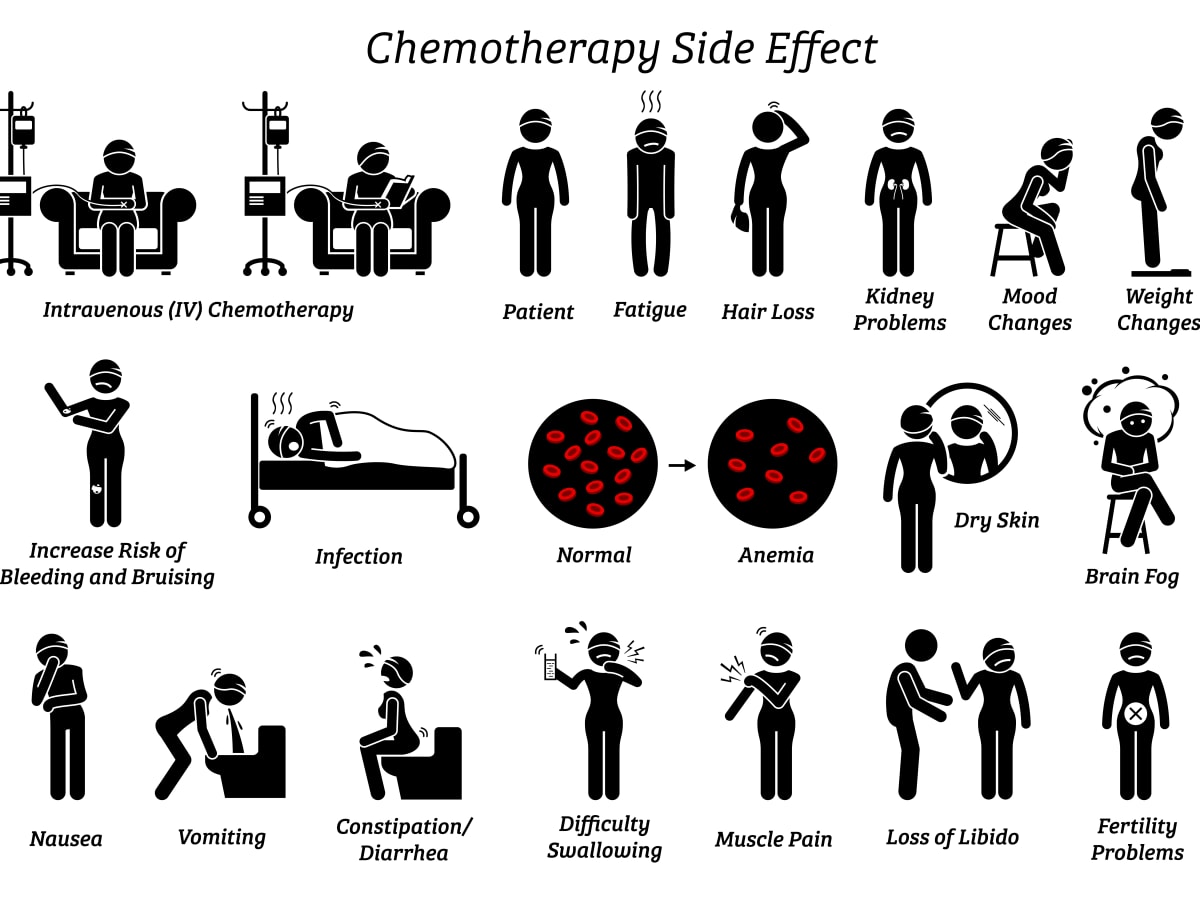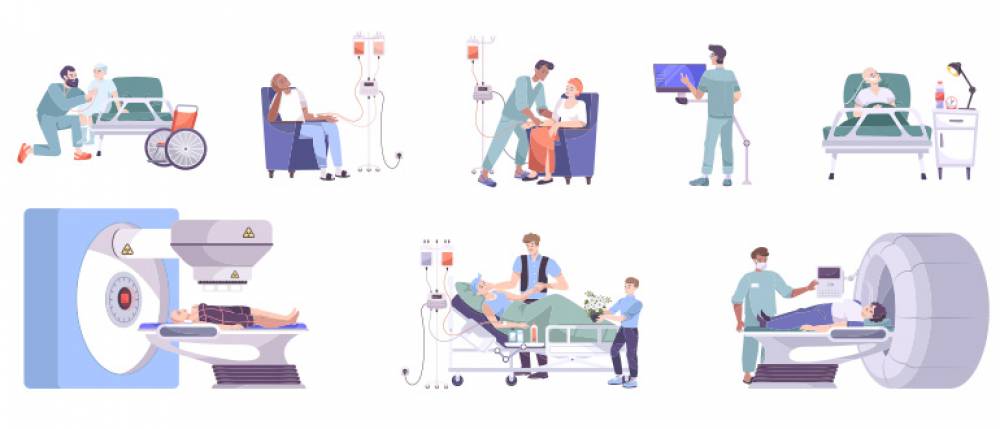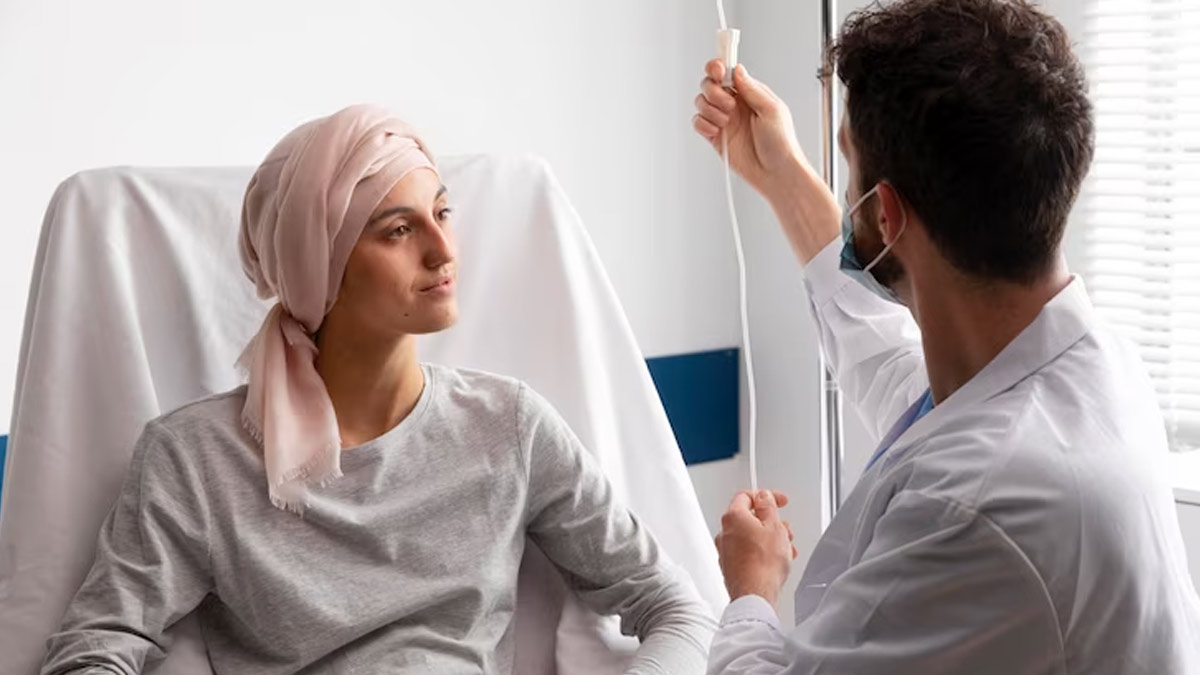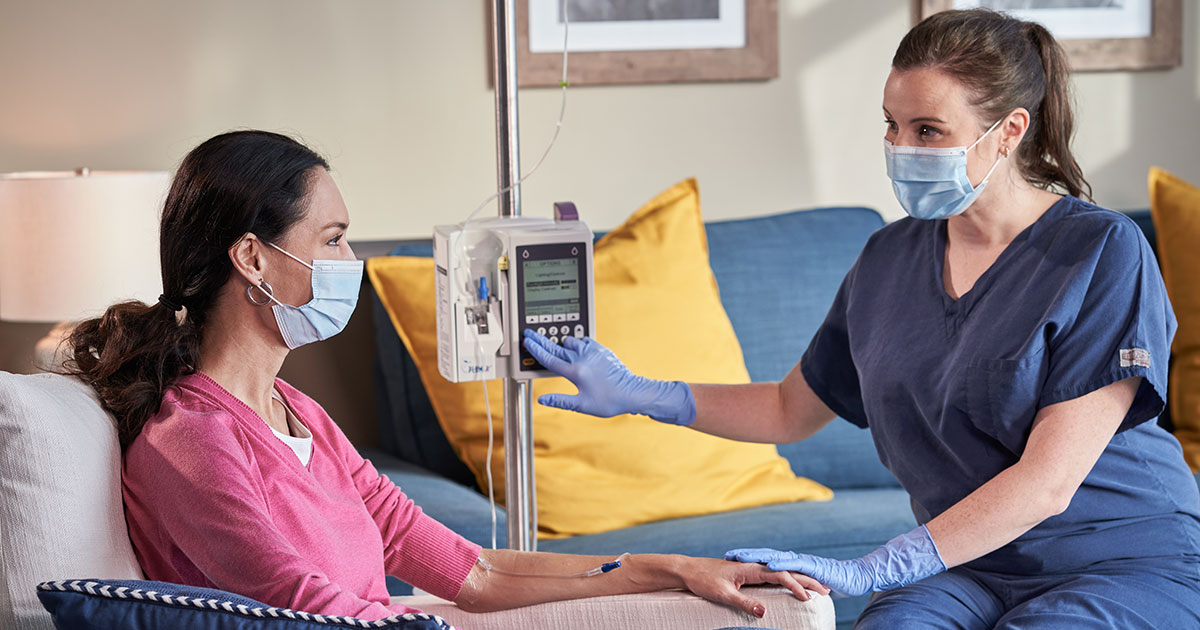What is chemotherapy?

Chemotherapy means "drug (Cytotoxic) treatment" and is the term used for treatment using cancer drugs that mostly affect cancer cells. Depending on the type of cancer, the aims, side effects and duration of chemotherapy may vary. Memorial Health Group Medical Oncology experts gave information about chemotherapy treatment, application methods and side effects.
What is chemotherapy?
Chemotherapy means treating cancer with medication. The drugs used in chemotherapy prevent the growth and proliferation of cancer cells and damage them. Classical chemotherapies can be more effective when used alone or with some drug combinations. Therefore, chemotherapy courses may contain more than one drug.
What is the purpose of chemotherapy?

Depending on the type and stage of cancer, chemotherapy is applied to treat the disease, prevent the spread of the tumor, slow down its growth, kill cancer cells that have spread from the organ where they started to other parts of the body, and improve some symptoms of cancer. In some cases, chemotherapy is the only treatment option. Depending on the stage of the disease, chemotherapy is applied sequentially or simultaneously with other treatments (surgery and radiotherapy). For example, chemotherapy may be administered before surgery to shrink the tumor or to prevent the proliferation and spread of cancerous cells that may remain in the body after surgery. The same practices are valid before and after radiotherapy; chemotherapy can be applied simultaneously with radiotherapy.
Is chemotherapy treatment applied other than cancer?
Chemotherapy is applied to treat the disease according to the type and stage of the cancer, to prevent the spread of the tumor, to slow down its growth, to kill cancer cells that have spread from the organ where they started to other parts of the body, and to improve some symptoms of cancer. In some cases, chemotherapy is the only treatment option. Depending on the stage of the disease, chemotherapy is applied sequentially or simultaneously with other treatments (surgery and radiotherapy). For example, chemotherapy may be administered before surgery to shrink the tumor or to prevent the proliferation and spread of cancerous cells that may remain in the body after surgery. The same practices are valid before and after radiotherapy ; chemotherapy can be applied simultaneously with radiotherapy.
What are the possible side effects of chemotherapy?
Nausea and vomiting may occur due to chemotherapy. This is due to the fact that some drugs affect the vomiting center in the brain and stomach movements, causing nausea and vomiting. This problem, which can usually be controlled, may require the use of certain medications to prevent or reduce side effects before chemotherapy. Since the effects of medications may vary from person to person, it may be necessary to use more than one medication to relieve side effects. In order for the patient to go through the treatment process in the most comfortable way and to tolerate the side effects, the most appropriate method should be selected together with the doctor and nurse.
In addition to taking anti-nausea medication, the following suggestions can be applied to reduce the feeling of nausea:
- Sometimes a food or drink that has left a positive impression in the past can reduce or eliminate that feeling. Therefore, if there is a practice that has been found to be beneficial in previous nausea/vomiting experiences, this should be tried first.
- The smell of hot food can increase feelings of nausea. Therefore, cold foods, e.g. Foods that can be served at room temperature or cold, such as cold sandwiches, cheese, cottage cheese, and cereals, can be preferred.
- A liquid and light diet should be followed to reduce nausea. Since rapid consumption of liquid food may cause a feeling of fullness in the stomach and, as a result, nausea and vomiting, it is appropriate to drink liquids slowly, sip by sip.
- May increase the feeling of nausea; Sweet, fatty, very spicy and strong smelling foods should not be consumed.
- It is necessary to avoid warnings such as bad smells, people who are nauseous or vomiting, people eating or the environment where food is cooked, as well as sights, sounds and smells that may trigger the feeling of nausea.
- Try hard or soft minty and sour candies to help reduce the perception of an unpleasant, metallic or drug taste in your mouth during chemotherapy.
- It is recommended to eat a liquid diet the day before chemotherapy, on the day of treatment and the next day. You should try to eat frequently by keeping meals light.
- Avoiding favorite foods during times of intense nausea will help prevent aversions to these foods that may arise later.
- You can try to get away from the feeling of nausea with hobbies such as favorite music, television programs, electronic games and reading books.
- Relaxing the muscles by breathing deeply can provide relief. Sleep can be tried during periods when extreme nausea is felt.
- Exercise and walking outdoors can be done if you do not feel tired.
- Applying regular oral care will both prevent the development of sores in the mouth and provide relief. For this purpose, you can gargle with carbonated and salt water at least three times a day.
- The anti-nausea medication recommended for the feeling of nausea that occurs when waking up in the morning should be taken before getting out of bed. Breakfast should be had after resting for 30-60 minutes. Despite all this, a doctor should be consulted as continuing nausea and vomiting will increase the risk of water and salt loss from the body.
- If you are unable to eat or drink anything due to nausea lasting more than a few days, if you vomit more than once a day, or if you cannot hold any solid or liquid food in your stomach, a doctor should be consulted.

Intraoral Problems
With the effect of chemotherapy; Intraoral problems called "mucositis" may occur, which can cause redness and mouth sores in the mouth, throat and gums. For this reason, patients who will receive high-dose chemotherapy are recommended to have dental and gum treatments done beforehand.
How to control oral problems?
- Using a soft toothbrush
- Gargling with warm carbonated water after every meal and before going to bed,
- Avoiding hard and shelly foods,
- Feeding soft foods.
- It is recommended to stay away from hot foods.
Bleeding
Depending on cancer and cancer treatment, problems in bleeding and coagulation systems may occur. Rarely, when high doses are used, chemotherapy drugs can reduce the number of platelets (PLT) in the blood, which help clotting. For this reason, the patient's tendency to bleeding may increase.
How to control bleeding problem?
If small red spots and bruising appear on the skin,
• If blood is seen in the urine,
• If the color of defecation becomes black or white,
• If abnormal vaginal bleeding occurs,
• If there is an increase in temperature, redness and swelling in the leg, the doctor should be informed.
What precautions should be taken if the platelet (PLT) count decreases due to chemotherapy?
Aspirin should not be used and painkillers should not be taken without consulting a doctor,
• Teeth should be brushed with a soft toothbrush,
• The nose should be cleaned without forcing,
• Care should be taken to avoid burns in any part of the body,
• Activities that may cause injury should be avoided.
How and where is chemotherapy given?
Chemotherapy treatment must be performed in a fully equipped oncology center and under the control of a medical oncologist. It should never be taken in any hospital or at home without the permission and knowledge of the doctor, and should not be administered by healthcare personnel who have no experience in administering chemotherapy. Drugs used in chemotherapy; It can be administered intravenously and orally in pill form.
What is the duration and frequency of chemotherapy?
The duration and frequency of administration of chemotherapy drugs are determined by the medical oncologist according to the type of tumor, its extent, the patient's age, general condition and other existing diseases (such as heart disease, high blood pressure, diabetes, kidney disease). The doses and frequency of administration of the selected drugs are also decided by the medical oncologist. The duration and frequency of treatment depends on the scheme determined by the disease and the patient's condition. Duration and frequency can be changed depending on the response obtained from treatment with chemotherapy drugs and the side effects that occur. Generally, the most commonly used intervals are 3 or 4 weeks, but in some treatment schemes, application is made once a week or every two weeks. The most important point about the timing of chemotherapy is that the treatment should be carried out as regularly as possible and as side effects allow. When treatment intervals are extended unnecessarily, the tumor is given the chance to recover and become stronger by gaining resistance to drugs. In this way, growth and spread continue and the chance of cure decreases. Therefore, the timing of chemotherapy sessions should be followed in accordance with the doctor's recommendation.
How long does a chemotherapy session last?
Since chemotherapy is a treatment that can also affect healthy cells, it should be applied carefully and meticulously by experts under appropriate conditions and environment. The duration of the session varies depending on the drug or combination of drugs used, the administration of one or more drugs, and requires time ranging from a few minutes to a few days.

How is chemotherapy done? How is it applied?

Chemotherapy drugs are administered in a fully equipped oncology center and under the control of a medical oncologist. Intravenous chemotherapy drugs are mixed into serum and given for various periods of time. In patients with a long chemotherapy process; There may be a need for hospitalization and after a while there may be a problem finding a vein. Since some drugs require long-term intravenous administration, chemotherapy is administered with the help of devices called "catheters" or "ports" that allow the drug to go directly to the main vein. In some patients, the chemotherapy treatment process is also carried out at home with medications taken orally in pill form. It is necessary to have detailed information about how to use these drugs and to consult a doctor in cases where questions may arise. Pills taken at home are as important as intravenous drugs, and their incomplete or incorrect use may negatively affect the treatment process. In addition to being used intravenously and orally as pills, chemotherapy is also applied to some areas within the body cavity. These; Examples include the abdominal cavity, the pleura and the bladder.
Frequently Asked Questions About Chemotherapy
While 'classical chemotherapy' practices remain valid in chemotherapy, which has a very important place in cancer treatment, many innovative methods, from smart drugs to molecular applications, increase success rates.
:max_bytes(150000):strip_icc()/chemotherapy-infusion-for-breast-cancer-430564-01-b7259218dd4c48e08d0f63888eb06d7e.png)
Ability to inhibit cancer cell growth signals
'Targeted smart drugs', which are frequently used for all types of cancer, are used in two ways: oral pills or intravenous. These drugs, which are small molecules or antibodies, attach to the growth receptors of the cancer cell and prevent the tumor from receiving growth stimulation. Medicines with minimal or controllable side effects such as nausea and hair loss both offer the patient an effective treatment option and improve the patient's quality of life during the treatment process. Smart molecules and targeted drugs; It is used in many types of cancer , especially brain tumors, head and neck, lung, stomach, breast, kidney and prostate cancer . The presence of these drugs does not eliminate the existence of classical chemotherapies. Smart drugs and chemotherapies are used in combination in some types of cancer.
Treatment support with immune system cells
There are many cells in the human body that fight cancer. However, it is known that the activation of these cells can only occur up to a point. Thanks to immunotherapies, which have become popular recently, a person's own immune system cells are used for this purpose. In this way, cancer is fought by using one's own immune system and defense mechanisms. This method, called immunotherapy, aims to treat the disease by directing the cancer fighter cells in the human body to the cancer tissue. The agents given to the patient in serum form and in periods of 2-3 weeks provide effective results in malignant melanoma and lung cancer, which are a very aggressive type of skin cancer . Immunotherapies, which can also be used in the treatment of kidney and lymph cancers, provide successful results in many types of cancer.
When does chemotherapy-related hair loss begin?

Along with hair loss, which is a common side effect of chemotherapy, hair loss also occurs in other hairy parts of the body. Hair may start to fall 2-3 weeks after the first treatment, or the loss may occur later. Wigs, bandanas, scarves, etc. after hair loss. There is no harm in using it. Hair loss may disturb the patient psychologically. Therefore, it is important that patients do not avoid sharing their feelings. The doctor will give information about whether the medications to be used will cause hair loss. It should be noted that this side effect is completely temporary. After the chemotherapy treatment is over, hair and feathers will begin to grow back. It is possible for some patients to grow thicker hair after chemotherapy. Patients should act with the guidance of their doctors regarding medications and ice caps that are thought to prevent hair loss.
SOURCE
https://www.medicalpark.com.tr/kemoterapi-nedir/hg-97
https://www.acibadem.com.tr/hayat/kemoterapi-nedir/
https://www.neolife.com.tr/kemoterapi-nedir/












































































